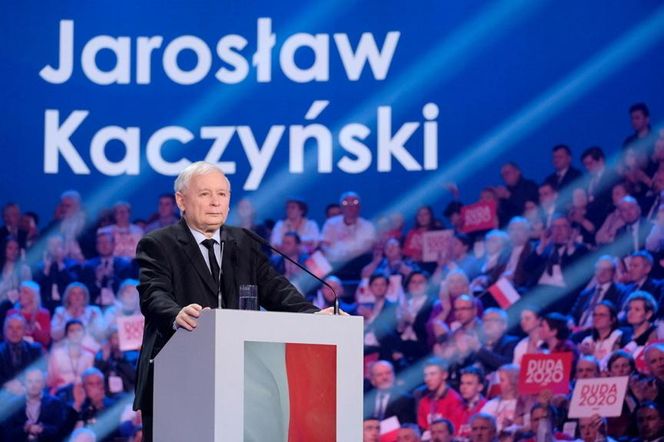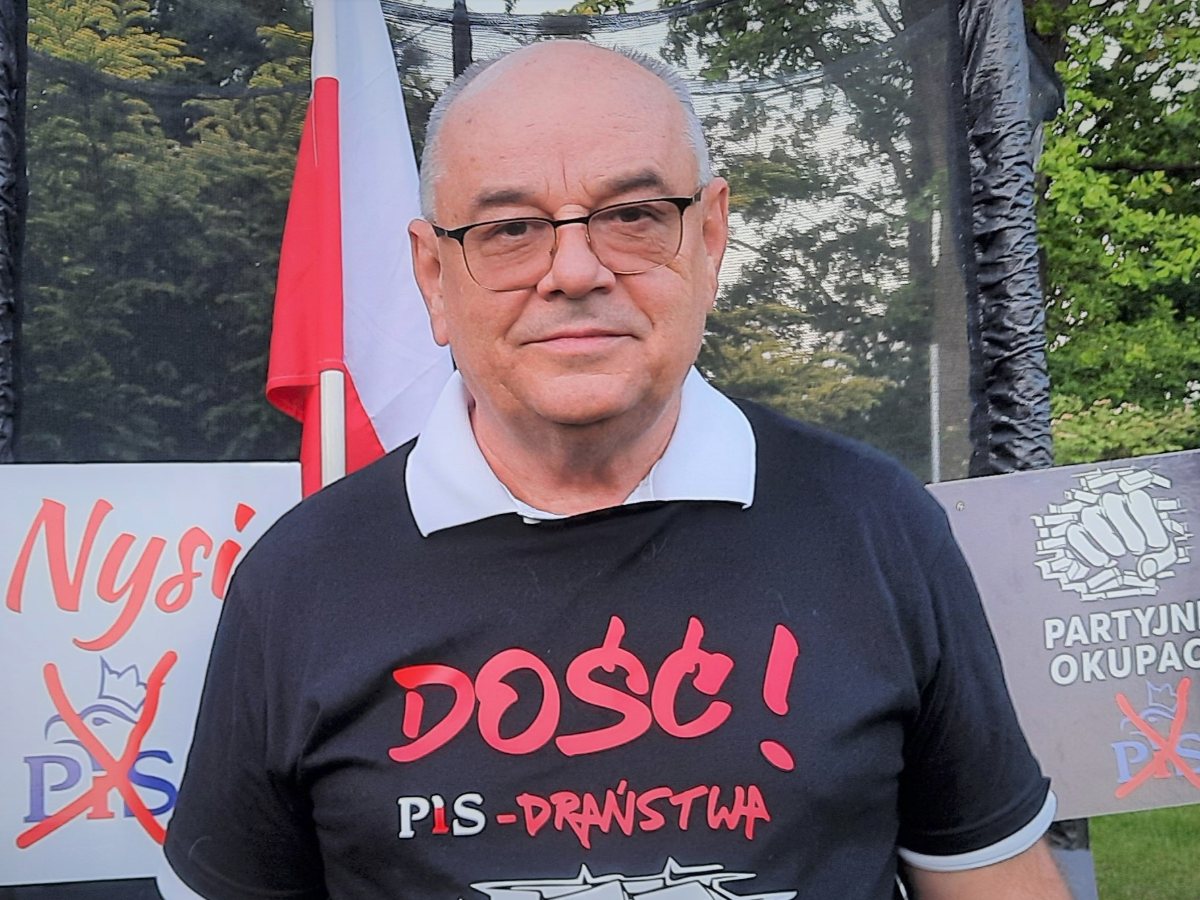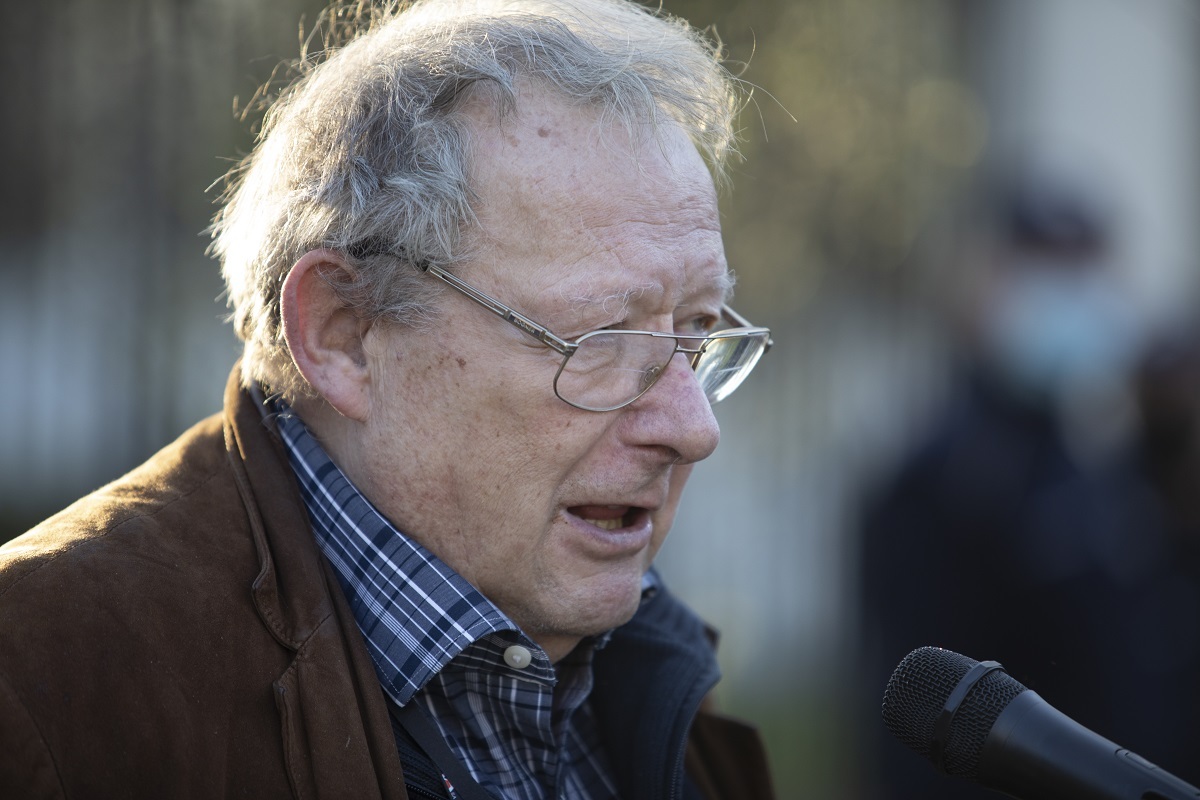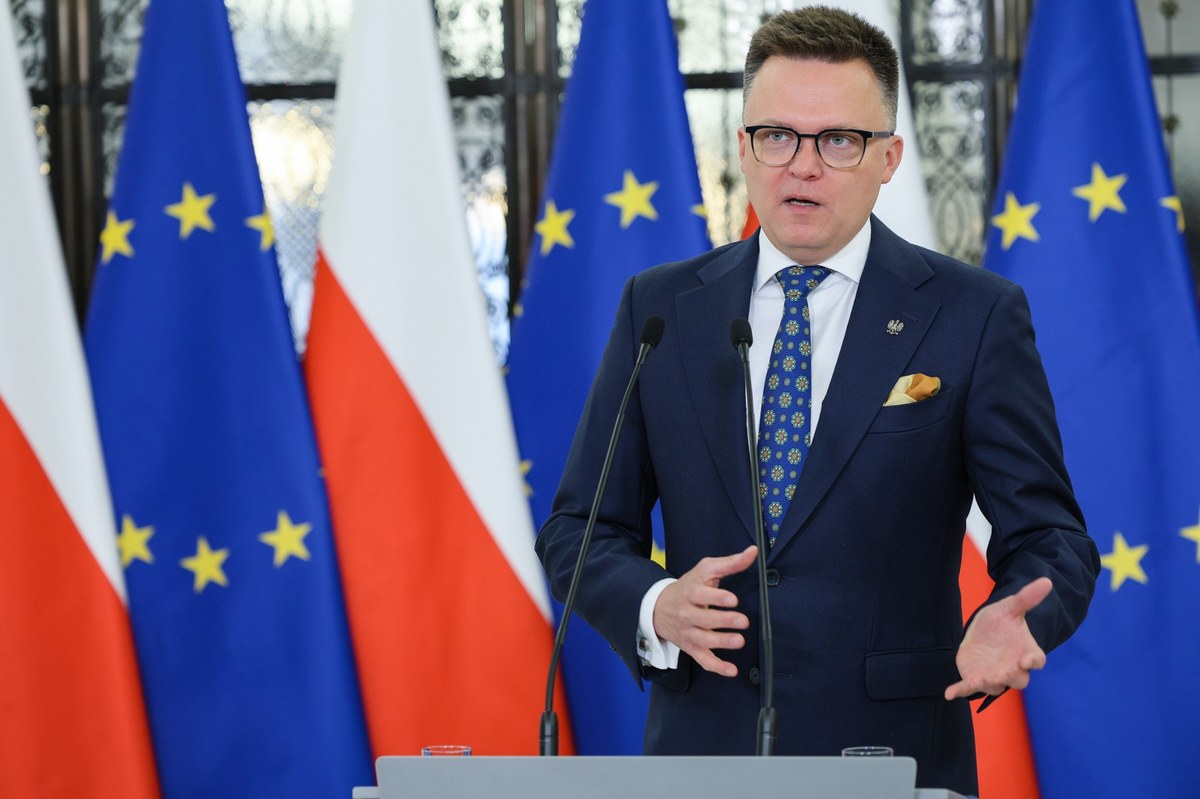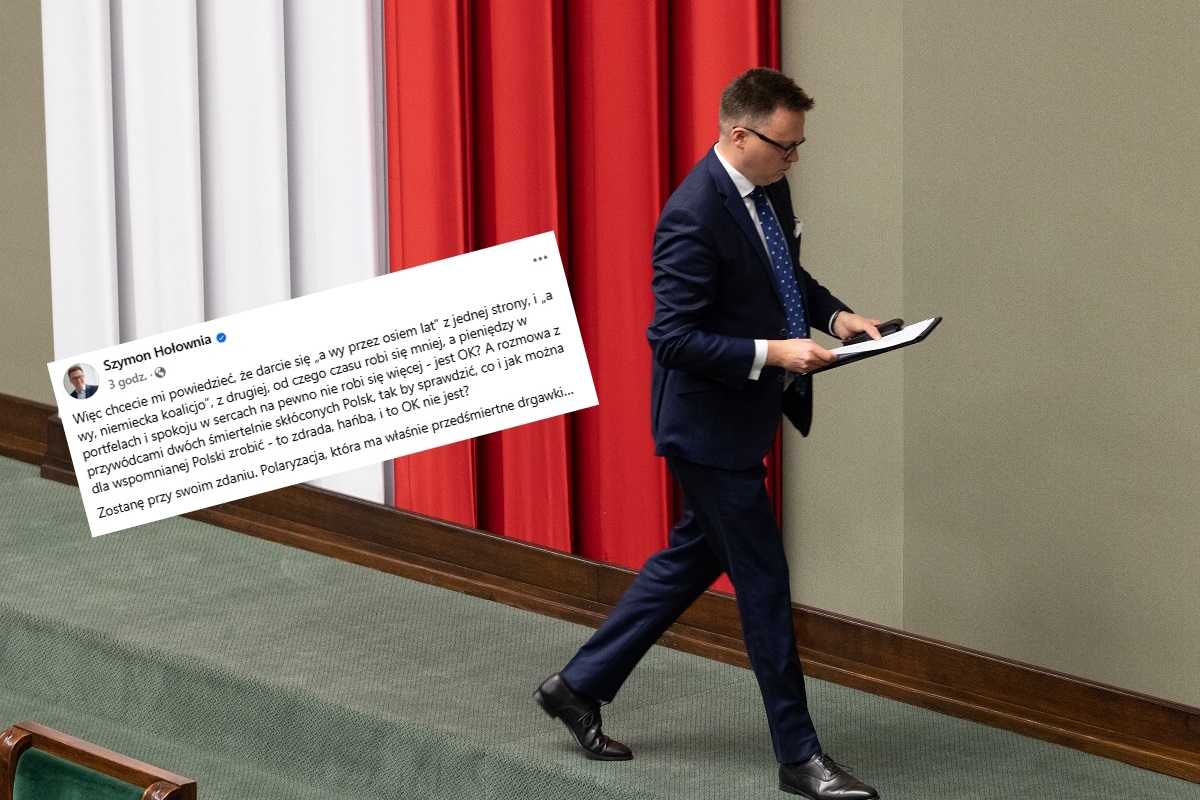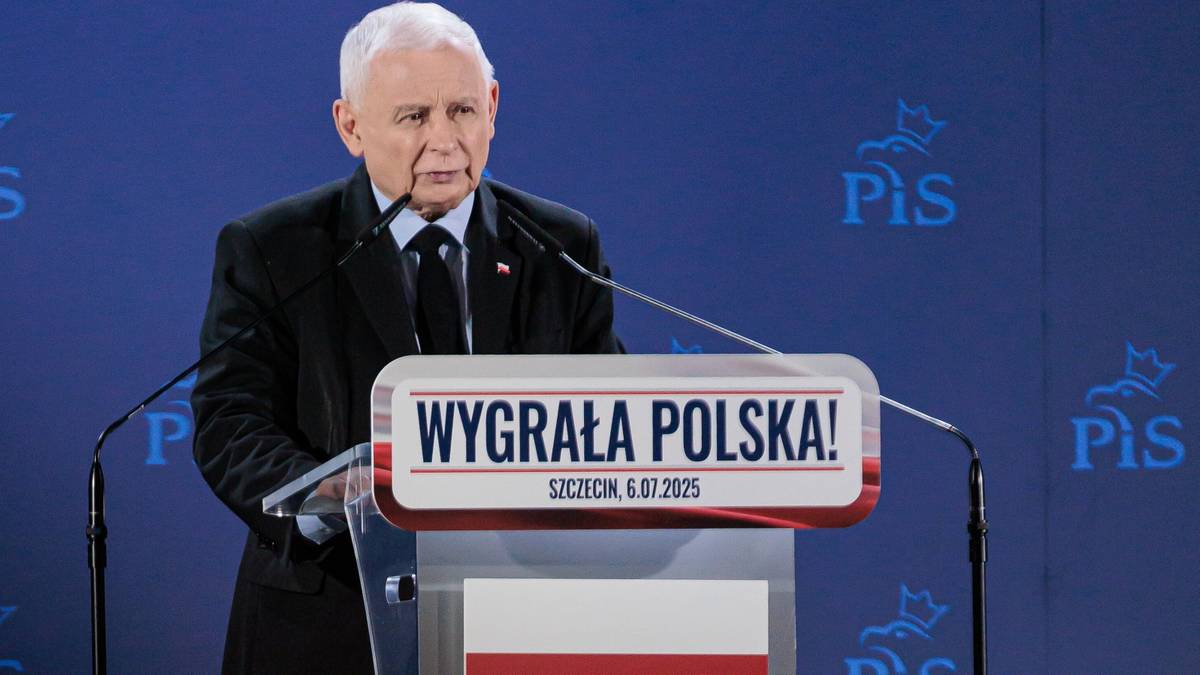
The Europarliamentary elections are behind us, and now we have a short break in the electoral marathon. Who has reason to be happy today, and who has reason to be upset?
For the sake of order, let us remember the results of the election: it was won by the Civic Coalition, gaining 37.06% of support, the second Law and Justice achieved a score of 36.16%. 3rd was the Confederation, which was supported by 12.08% of voters, and then the 3rd Road and Left with 6.91% and 6.3% respectively. another committees, i.e. the Unpartisan Local Government and PolExit, achieved a score of little than 1%. These results translate into the following division of 53 seats for Poland: KO – 21, PiS – 20, Confederation – 6, TD and Left – 3.
First triumph in 10 years
Without doubt, the Civic Coalition was successful due to the fact that for the first time in 10 years it was Donald Tusk's organization that won the election. Law and Justice, on the another hand, have lost this election for the first time in 10 years. These are the apparent facts and indisputable facts which politicians of the Law and Justice would use. And these are not missing – the first of the Euro MPs, Joachim Brudziński, in 1 of the talks, argued that "it was only a tiny defeat, they were going to crush us, exit poll showed a difference of 7 percent points and ended in little than one". Of course, these arguments are to any degree correct, this failure is definitely not a defeat, the Law and Justice Office remains 1 of the 2 dominant forces on the Polish political scene all the time, despite many (often correct) "accounts", striking the image of the party, for various events of the last 8 years, with the Justice Fund at the head.
These 7 mandates are not only the failure of 7 people in the Euro-Parliament, but besides the political influence within the Conservative and Reformist Group (7 MEPs are more than 10% of its current state) and crucial funds – both for candidates themselves and for the party, thus financing its activities, future electoral campaigns, etc.
‘Empty appetizers’
While the Platform has unquestionably reason to rejoice, it cannot be said about the remaining parties of the ruling coalition. Both the co-founders of the 3rd Way of PSL and Poland 2050, as well as the Left, failed in the elections. Actually, it's a disaster. The 3rd Road, which, on the basis of the results of the parliamentary or local elections, could think of introducing at least six MEPs, yet introduced only 3 of them. Additionally, she lost about half of her erstwhile support, falling off the podium and barely holding 4th place. It has not been a fewer days since the election, and there are already voices from both parties suggesting that the roads of both parties may shortly depart.
The Left introduced only 3 Euro MPs, all from the same faction. 2 of them, Robert Biedron and Krzysztof Śmiszek, live at even 1 address. There are more and more calls for reform, more emphasis on the discrimination from the PO, and hard to put up their own demands. Of course, representatives of the organization Together talk loudly about this, but akin voices are not missing from the very heart of the Left – Anita Kucharska-Dziedzic, Maciej Kopiec or even Włodzimierz Czarzasty talk a akin tone. We mentioned the organization Together – its representatives constantly stress that they did not enter the government, even though they gave him a vote of assurance and stay in the co-founding government of the club Left. Another defeat of the Biedron & Czarzasty duo may prompt Adrian Zandberg and the company to take action, especially with respect to the upcoming presidential elections.
The consequence achieved by the left is besides the responsibility of the full deficiency of will to fight among the "party pits". In any voivodships, the run was practically not conducted – 1 can see it in Podlasie or Podkarpacie, where the results of the Left are little than 3%. But in these elections it was crucial that the national consequence be as advanced as possible, due to the fact that it translates into the obtained mandates. In addition, the dispute in Silesia, where local structures, with Maciej Kopec at the head, powerfully opted for the 1 for Łukasz Kohut, however, the party's board vetoed this candidacy, exposing Maciej Necessary. The full list of the Left gained twice as much votes as Kohut himself, who competed in the three. This situation is simply a good example of the gap between structures and the top of the party.
Paradoxically, however, the Left has 1 reason to rejoice. The consequence of the 3rd Way. And this is not the satisfaction resulting from empty envy, but from the fact that this consequence strengthens the position of the Left. After the local elections, it was from the 3rd Way that the voices of a change of coalition agreement were heard at the expense of the left-wing group. Now the position of both parties has drawn closer to each another (although the power of mandates in the 3rd Way parliament remains rather considerable), which paradoxically somewhat improves the position of the Left, or possibly even condemns both parties to interact.
How will the results affect the ruling coalition?
The question that needs to be asked is: what does specified coalition results mean for the leadership organization in the government, the Civic Platform? It is hard not to get the impression that politicians of the PO accepted them with satisfaction.
Yes, you might even fishy that after these results it helped. In my opinion, there is no case that the information about the arrest of Polish soldiers on the border, which hit Kosiniaka-Kamisha before the elections themselves, could be leaked to the media from the PO leaders. Was it in their interest? In these elections, yes – firstly, it strengthened its outcome, allowing the so-awaited leap of the PiS, and secondly, the weakening of the coalition strengthens the interior position of the Tusk party. Commentators say, for example, Robert Mazurek, PO MPs are increasingly talking about the request for the Prime Minister to "screw the screw". On the another hand, there is simply a request to separate from the PO and to set tough conditions for the implementation of their demands.
However, it is doubtful that Donald Tusk will take care of the demands of his partners. mediocre results, weak polls, interior inconsistencies, conflicts between the partners themselves (although in worldview matters), and what is peculiarly important, the deficiency of another coalition ability in view of the unambiguous entry into the anti-PiS camp – all this makes Tusk not request to do much to himself present with the threats of the 3rd Way and Left. Moreover, persistent weak polls will provoke those afraid about re-election of exodus MPs to the main organization of the ruling camp. possibly in another directions too.
At first glance, it can be seen that Donald Tusk now has the most powerful cards in his hands, which in the position will most likely lead to further weakening of the position of Poland 2050, PSL and Left. I presume the current position quo will last at least until the presidential election, and the only fort I anticipate is the final disengagement of the organization Together from the ruling coalition, which does not violate the majority. However, the presidential run itself can bring large shuffle, possibly the fall of the government, especially if each organization decides to set up its candidate, which seems crucial in maintaining independency on the political stage. However, how about the Citizens' Coalition "will swallow an appetizer", which will consequence in 1 candidate and then awaited by many together list?
Second winner
The moods are completely different from those of the Left and 3rd Way in the Confederacy. This organization celebrates by far the top success in history. 6 tickets, breaking the 10% barrier, place on the podium – Confederates are to be arrogant of it. In addition, the large promotion of women's faces – Anna Bryłka and Ewa Zajączkowska-Hernik became figures with national recognition, and this is what the Confederation needed very much. This organization achieved this consequence not only thanks to various, beneficial from its perspective, events, but above all thanks to the tremendous work of leaders, both nationwide and local, as well as structures and sympathizers.
The primaries that the Confederates will decide who will be their candidate in the presidential election are approaching. And the fight begins at the phase of shaping the rules, as Mentzen's faction has already announced that only 2 candidates will compete in them, namely Sławomir Mentzen and Krzysztof Bosak. This message clearly aims to marginalize Braun. It is hard to believe that he would agree to this scenario, especially reinforced by a large consequence in fresh elections. The "ball" will so most likely be on the side of the National Movement, who has been trying to reconcile reluctant sides for a long time. Is this gonna last longer? We will shortly see this, but it is easy to get the impression that the division after spectacular success may be the origin of further major problems for all the communities forming the Confederate today, as well as the deficiency of hope for many who believed in this project.
A young generation coming?
Finally, it is worth noting an interesting matter, namely the increasing importance of a young generation of politicians. This is peculiarly evident within the framework of Law and Justice, where the older generation has been overshadowed by younger colleagues. Sometimes not even dimmed, but crushed. This can be seen in many districts: in Silesia Patryk Jak from the second place won more than 100,000 votes than the first Anna Zalewski, in Łódź Waldemar Buda from the 5th place won not only the biggest score, more than twice as good as any another candidate, but besides deprived the mandate of politicians specified as Witold Waszczykowski, Joanna Lichocka and Robert Telus. In Pomerania, Piotr Müller, from the 4th place, deprived the mandate starting with the first Anna Fotyga, and 1 of the best nationwide results was won by Dominik Tarczyński, not much to give way to the 2019 election evidence holder, Beacie Szydło.
We besides see akin cases elsewhere. The failure of Hanna Gronkiewicz-Waltz in Warsaw with Michał Szczerba (PO list) or Andrzej Szejna with Dorothy Kolarska (Lewica) can be a good example. It is besides worth noting that Brussels leaves a large group of politicians of the older generation: Jerzy Buzek, Leszek Miller, Włodzimierz Cimoszewicz, Marek Belka, Róża Thun, Ryszard Legutko or yet Jacek Saryusz-Wolski (in my opinion this is simply a large loss, 1 of the more industrious and substantive Polish representatives of the erstwhile term). They are frequently replaced by young people, both those already mentioned above and representatives of the Confederation of the lowest average age among all our representations in the European Parliament.
Finally, it can be said that this "youth success" remains theoretical for this moment. In the election, over 70% again received 2 parties led by politicians of a full of 142 years old. The same who have shared Polish political life for 19 years. Is there a change in this duopol? For the next fewer months it does not look like it is going to happen, but the situation will surely become dynamic, especially since the closer we get to the presidential elections, the more it will be seen that it will be up to them to make the Polish political scene for the coming years.
photo: wikipedia.commons


